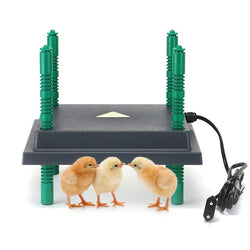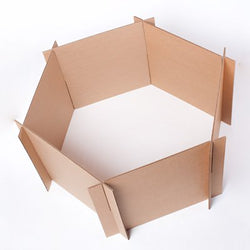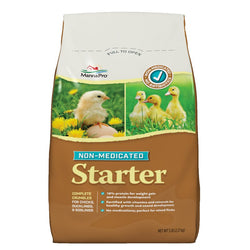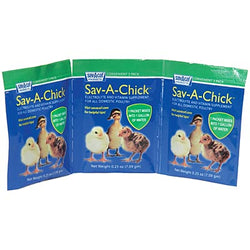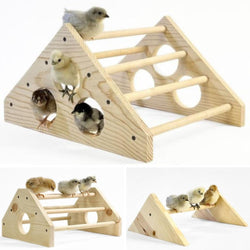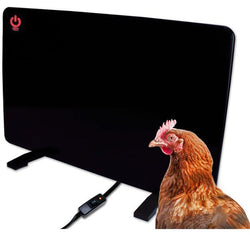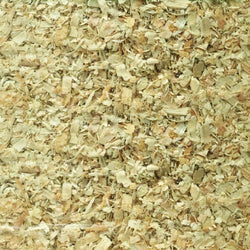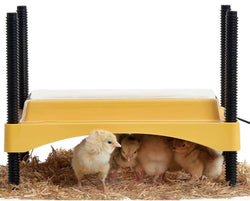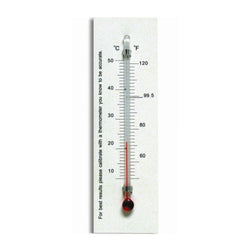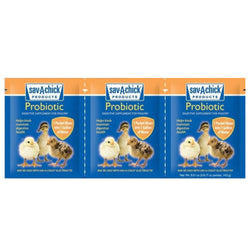How can I stop my rooster from pecking my hens?
Back to blog
Unless your rooster is causing the hens injury, pecking hens on their backs and heads is actually no cause for concern. It is courting behavior. He pecks them on their backs or heads as a signal that he would like to mate. With enough hens for each rooster present--we normally recommend 10 - 12 hens to one rooster--you shouldn't have any trouble with his over-breeding the hens, although it's still possible he might develop a favorite or two. When a hen gets pecked like that, if she is ready to mate, she will squat down so she can be mounted. It's perfectly normal behavior for chickens.
Hens with bald patches are probably your rooster's favorite hens, so he probably mates them more often than the other girls. In our experience, each rooster is different. Some are excellent protectors and friendly to humans, but are rough on the hens, leaving them with completely bald backs from his mating them! On the other hand, other roosters try to attack every time a human comes near them, but leave "their girls" without a feather out of place.
As you've probably already witnessed, the rooster will stand on the hens back during mating and he'll hold onto the feathers at the back of the hens' head to keep his balance. It's not uncommon to see hens with some feathers missing on their backs, tops of their wings and backs of their heads. We sell chicken saddles to help protect their backs; however, there is no protective device to help the hens heads. That said, as long as he is not drawing blood and the hens don't seem distressed, you can keep the rooster together with his hens. If you determine that the girls a break, you can always remove the rooster from the pen for a while to give the girls a chance to recover from his attention.
Roosters will usually only mate hens that are laying. Without a close examination, it's not always obvious to us which hens are laying, but it will be obvious to your rooster. An adult rooster won't show interest in mating young hens until they reach sexual maturity, so if you have juvenile pullets with missing feathers, it's possible they have reached maturity before the rest of your flock. He will have more targets for his affection as the rest of the flock matures. Or, during the winter, even though you may have plenty of hens, it's possible that only a few are laying, so the rooster is only mating those hens. Once spring rolls around and more of the flock is laying, he will spread his attention out again.
Hens with bald patches are probably your rooster's favorite hens, so he probably mates them more often than the other girls. In our experience, each rooster is different. Some are excellent protectors and friendly to humans, but are rough on the hens, leaving them with completely bald backs from his mating them! On the other hand, other roosters try to attack every time a human comes near them, but leave "their girls" without a feather out of place.
As you've probably already witnessed, the rooster will stand on the hens back during mating and he'll hold onto the feathers at the back of the hens' head to keep his balance. It's not uncommon to see hens with some feathers missing on their backs, tops of their wings and backs of their heads. We sell chicken saddles to help protect their backs; however, there is no protective device to help the hens heads. That said, as long as he is not drawing blood and the hens don't seem distressed, you can keep the rooster together with his hens. If you determine that the girls a break, you can always remove the rooster from the pen for a while to give the girls a chance to recover from his attention.
Roosters will usually only mate hens that are laying. Without a close examination, it's not always obvious to us which hens are laying, but it will be obvious to your rooster. An adult rooster won't show interest in mating young hens until they reach sexual maturity, so if you have juvenile pullets with missing feathers, it's possible they have reached maturity before the rest of your flock. He will have more targets for his affection as the rest of the flock matures. Or, during the winter, even though you may have plenty of hens, it's possible that only a few are laying, so the rooster is only mating those hens. Once spring rolls around and more of the flock is laying, he will spread his attention out again.
One last word: when chickens lose feathers, some chickens will immediately regrow the lost feathers and some chickens won't regrow the feathers until their next molt, so don't be disturbed if it takes a while for them to recover their feathers and look normal again. As long as the girls do not have any bloody patches or raw spots, they are fine to stay with the flock. They will eventually regrow their feathers...and hopefully the rooster will refine his mating technique to pull fewer feathers!
